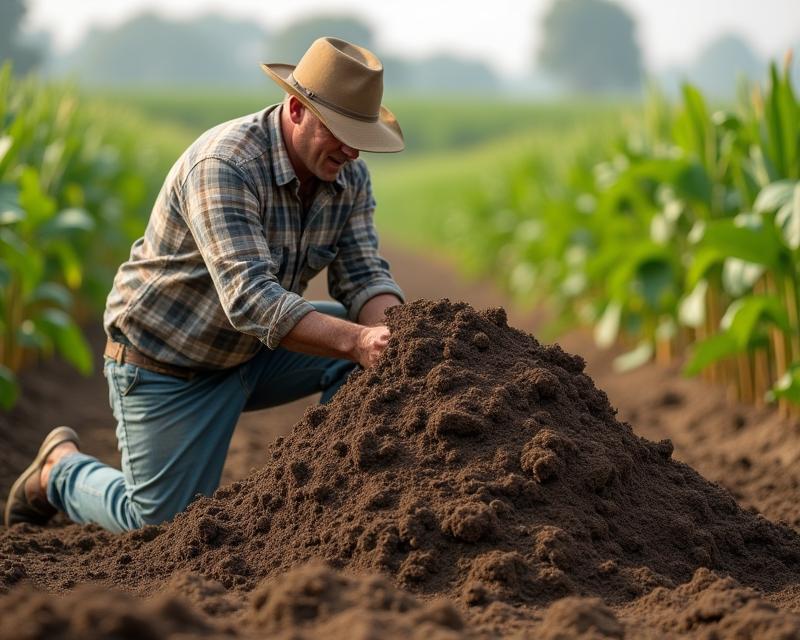Ancient Wisdom: Traditional Composting
Publish in Sustainable Farming el 23/07/2025 16:35
Ancient Wisdom: Traditional Composting
For centuries, farmers and gardeners understood a fundamental truth: the soil is alive and needs constant nourishment. Long before synthetic fertilizers, they relied on a practice deeply rooted in nature – composting! Traditional composting wasn't just about getting rid of waste; it was a vital part of a sustainable farming system, a way to return valuable nutrients to the earth and build healthy soil.

The Core Principles
The basic idea was simple: collect organic materials – kitchen scraps, animal manure, crop residues, leaves, and straw – and let them decompose naturally. This decomposition process, driven by microorganisms like bacteria and fungi, transformed the waste into a rich, dark substance called compost. This compost acted as a natural fertilizer, improving soil structure, water retention, and overall fertility. It was a closed-loop system, minimizing waste and maximizing resource utilization. Farmers understood that everything on the farm had a purpose, and nothing was truly 'waste' if it could be put back into the soil.
Methods of Traditional Composting
Methods varied depending on the region and available resources. Simple piles were common, often layered with green materials (nitrogen-rich, like grass clippings) and brown materials (carbon-rich, like leaves and straw). Some cultures used enclosed pits or mounds to control the composting process and reduce odors. In many communities, animal manure was a key ingredient, providing a powerful boost of nutrients. The key was to maintain a good balance of carbon and nitrogen, along with adequate moisture and air. Farmers often knew instinctively when the compost was ready – it would be dark, crumbly, and have an earthy smell.
Benefits for Modern Farmers
The principles of traditional composting are more relevant than ever today. Modern farmers can learn from these ancient practices to reduce reliance on expensive and environmentally damaging synthetic fertilizers. Composting not only improves soil health but also reduces landfill waste and helps sequester carbon. By embracing traditional composting techniques, you can create a more resilient and sustainable farm, improve crop yields, and contribute to a healthier planet. It’s a way to reconnect with the natural cycles of life and build a thriving ecosystem in your own backyard. Start small, experiment with different materials, and discover the power of returning waste to the soil!





